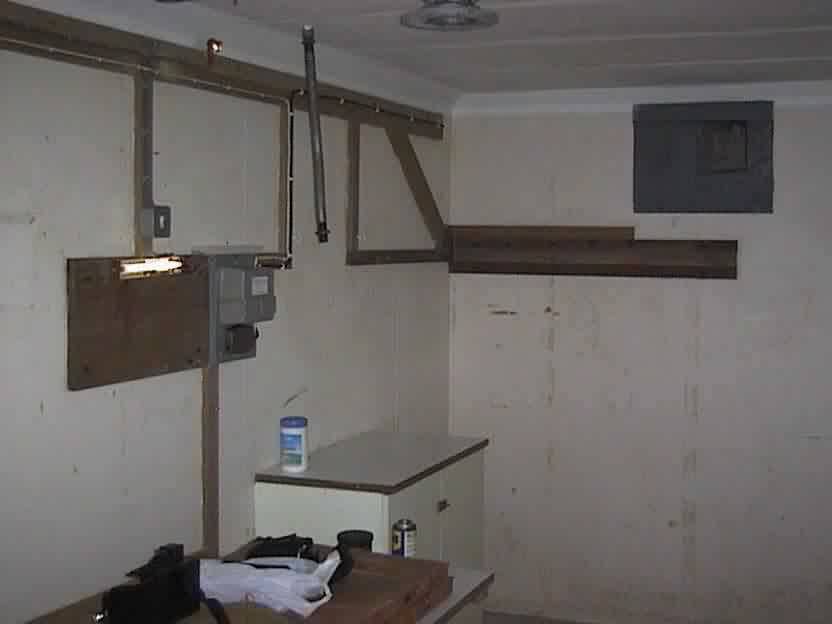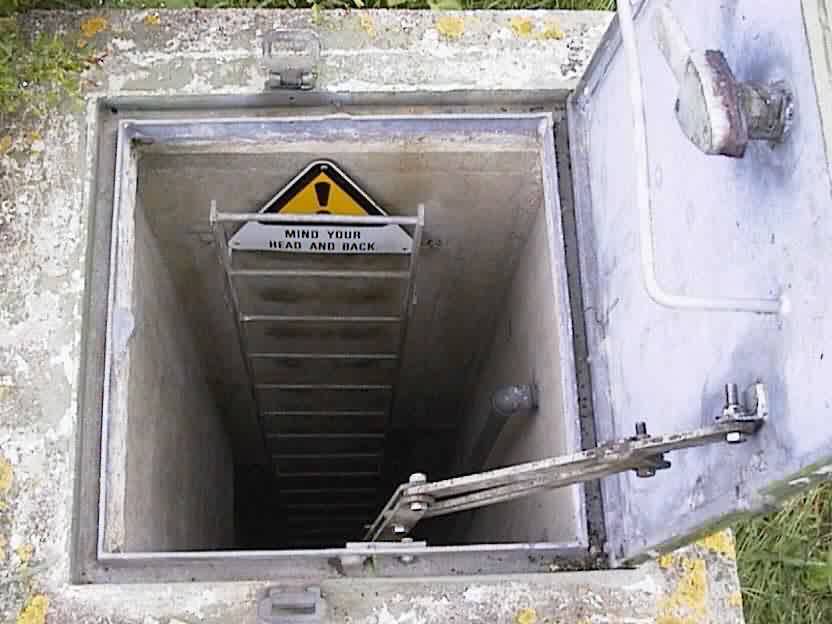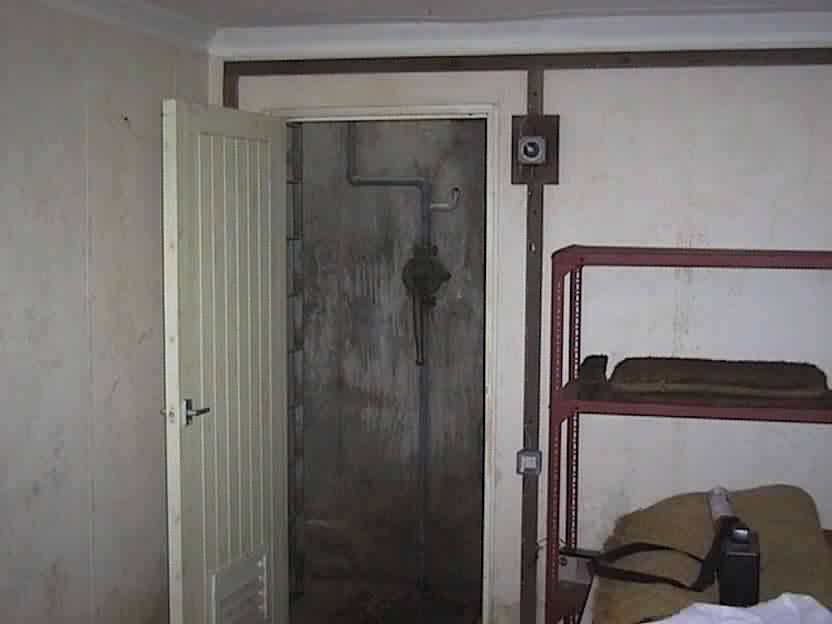

Project X. R.O.C. Bunker.
Project No. PX0057.
...NOW RESTORED AND IN THE HANDS OF PX00045...
One day, a member was watching Anglia News and they did a section on an Estate Agent who was selling an old Royal Observer Corps Bunker. It was by closed bid and so we bid and also bid for the contents which was in a separate lot. A while later we were informed we was successful and it was transferred to us just as if we were buying a house with solicitors etc. This was quickly restored inside and we collected the contents for renovation. It had been dug out and completely rebuilt not long before being decommissioned. The pump was freed and we pumped the water out of the sump and painted it inside with damp proof paint. Items required to finish the full compliment of equipment were being sort at quite a high level but apparently have gone into mothballs. This includes the Bomb power meter, the Fixed survey meter and the training unit for this. Oh and the R.A.F. bunk beds ! The siren issued to these bunkers can sometimes be seen at military sales.

Main room.

Bunker entrance.

Door back out to shaft. To the right is the loo.
This R.O.C. Bunkers History provided by a local historian.
In 1936, when the possibility of War with Nazi Germany became increasingly likely, a Royal Observer Corp. post was opened at March. This post was part of the national aircraft tracking and height finding system to provide this crucial information for Fighter Command, in pre-radar days, which enabled us to secure victory in The Battle of Britain and throughout the Second World War. Following the end of the War, the post was transferred underground to enable it to continue in a new role that of providing radiological information if the Cold War became a Shooting War. During this second phase, the post was re-built in the late 1980s because of its importance in providing data to the United Kingdom Warning and Monitoring Organization. However it was eventually closed in September 1991 at the conclusion of the Cold War after some 55 years service to the nation. Throughout these 55 years, it was manned by volunteers from the local community often in arduous conditions. During the Second World War, the post members were witness to the heroism of a young airman from Australia, Pilot Officer J. Hocking, who gave his life rather than crash his crippled aircraft onto the town of March. When in the 1980s the community of March wished to mark his heroism, members of the Royal Observer Corp. played a key role in fund raising.
1/11/1999. ( Authors signature unreadable ! )